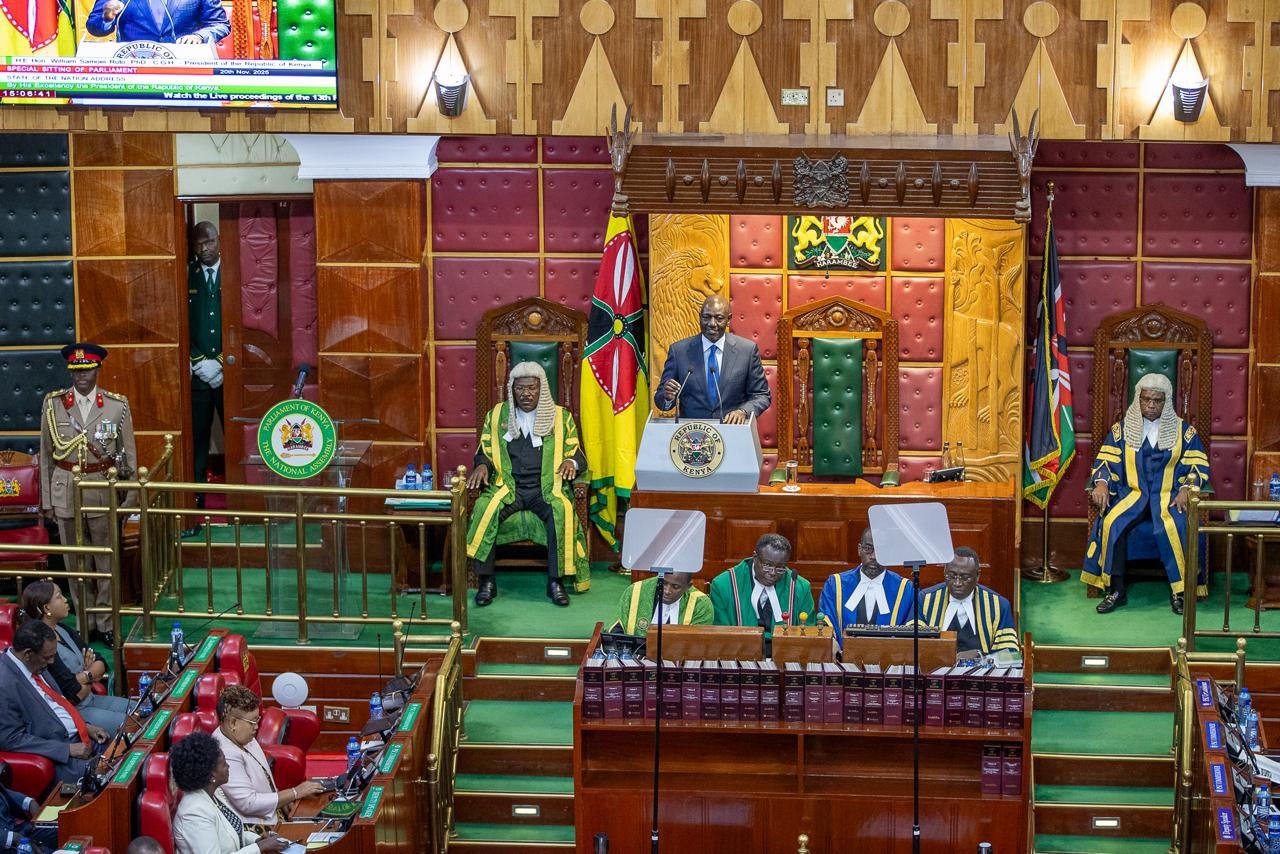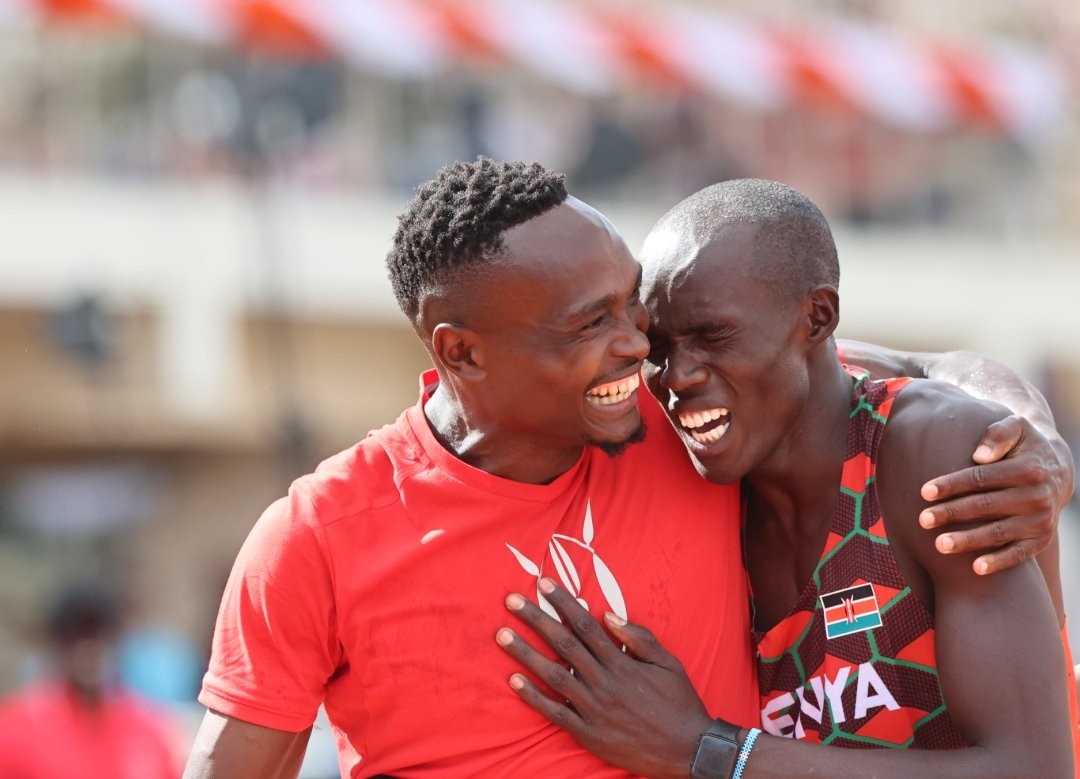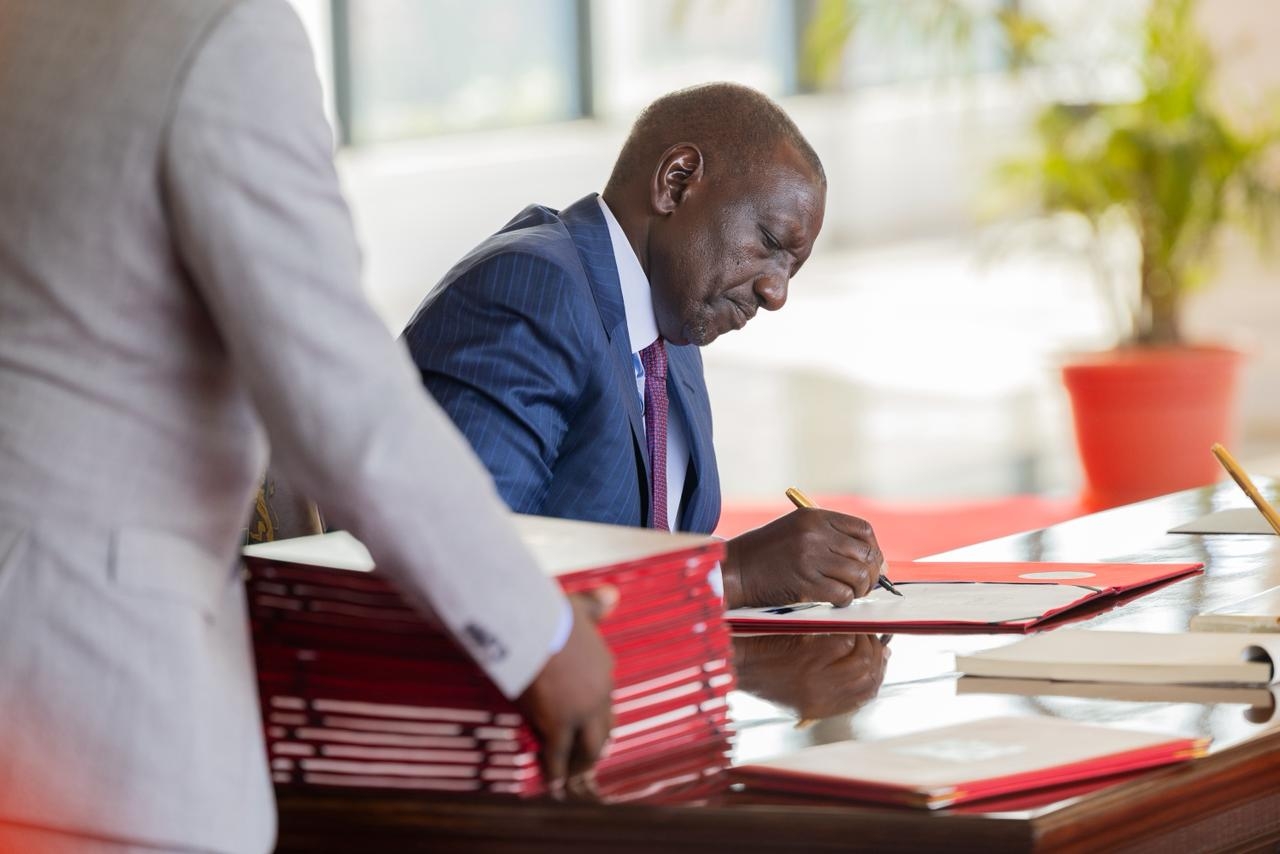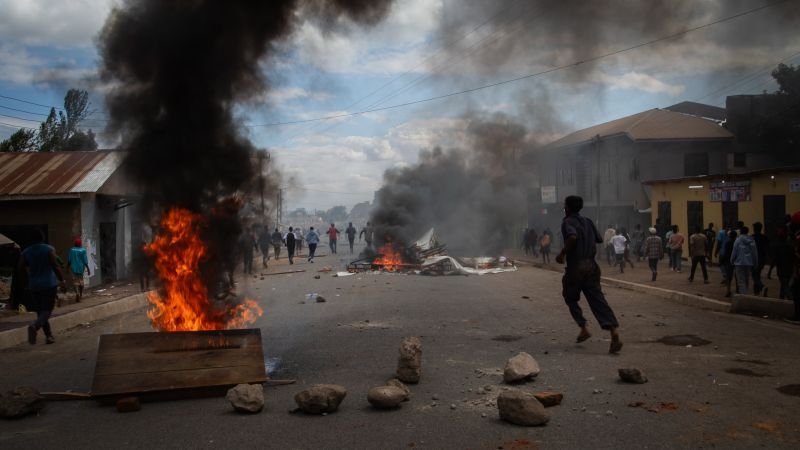On Wednesday evening, Defence Cabinet Secretary Aden Duale announced the deployment of the military following a day of deadly protests against the controversial Finance Bill 2024.
In a gazette notice dated June 25, the Defence CS cited Article 241 (3) (b) of the Kenyan Constitution to declare the deployment of the Kenya Defence Forces in support of the National Police Service.
According to Duale, the deployment was in response to the security emergency caused by the violent protests in various parts of the country.
"The Kenya Defence Forces is deployed on June 25, 2024, in support of the National Police Service in response to the security emergency caused by the ongoing violent protests in various parts of the Republic of Kenya resulting in destruction and broaching of critical infrastructure," the gazette notice reads.
However, the deployment triggered mixed reactions with critics questioning the scenario quoted by Duale.
Here is what the Constitution says about the deployment of Kenya Defence Forces in Kenya.
The deployment of soldiers within the country is detailed in Article 241 of the Constitution.
The article provides that there are two scenarios when the military can be deployed within the country:
To support the police in situations of emergency
Section 3(B) of Article 241(3) says that the Defence Forces shall assist and cooperate with other authorities in situations of emergency or disaster, and report to the National Assembly whenever deployed in such circumstances.
The Kenya Defence Forces Act provides procedures and protocols to be followed when the military is being deployed to support the National Police Service.
Section 34 of the KDF Act is explicit on the regulations of support of police
Section 34(1) provides that in the event of the Defence Forces being deployed in support of the National Police Service, such deployment shall comply with constitutional standards relating to human rights and fundamental freedoms.
Section 34(2) says that where the deployment of the Defence Forces in support of the National Police Service happens the Cabinet Secretary shall, within twenty-four hours; issue a notice in the gazette of the commencement of such deployment.
Where the deployment under this scenario has been discontinued, the Cabinet Secretary shall within twenty-four hours, issue notice in the Gazette, of the discontinuation of the deployment.
The CS is also required to report to the National Assembly on the deployment.
Deployment to restore peace in any part of Kenya
The Act also spells out how the deployment of support of the police in a joint operation to restore peace is approved and determined.
Section 3c - The Defence Forces may be deployed to restore peace in any part of Kenya affected by unrest or instability only with the approval of the National Assembly.
The Defence CS is required to write to Parliament detailing the background and the justification for such a deployment.
The request will then be tabled in the form of a motion by the Majority Leader or the leader of the government side with MPs expected to debate before taking a final vote.
It is after the House has approved such a request that the CS for Defence will gazette the deployment including stating the areas for deployment.
After the deployment, the CS will table a report to the National Assembly about the mission.
Any deployment by the KDF to conduct any operation either alone or in support of the police to restore peace in any part of Kenya affected by unrest must first be approved by the National Assembly.
Section 33(4) of the KDF Act states that deployment of support of the police may only be performed in such area or at such place as the National Security Council may determine.
The deployment shall be discontinued as the National Security Council deems expedient and necessary.
The deployment shall be performed in accordance with a code of conduct and operational procedures on the regulation of the Defence Forces support operations approved by the Defence Council.
The deployment will be guided by a joint operation plan and guidelines issued by the Chief of the Defence Forces and the Inspector-General of the National Police Service.
The guidelines will detail cooperation between the Defence Forces and the National Police Service; and the co-ordination of command over and control of members of the Defence Forces and the National Police Service during the operation.
Powers and duties of soldiers while being deployed
These are contained in section 35 of the KDF Act.
The Act says that whenever the Defence Forces or any portion or member thereof has been deployed either in support of police or in a security operation, that KDF member shall have the same powers and exercise the same duties as those conferred or imposed upon a member of the National Police Service.
The powers and duties referred to may only be exercised or performed for a successful execution of that deployment, maintenance of law and order; or preservation of the internal security of the State.
However, such powers and duties referred to shall not include powers and duties to investigate crime.
The law provides that in such an operation or support of police, a member of the Defence Forces who arrests or detains any person or seizes any article or object shall as soon as possible hand that person over to the police.
Section 35(5) says that a member of the Defence Forces shall in respect of acts done or omitted to be done by him or her by this section be liable to the same extent as a member would have been liable in like circumstances if that member was a member of thy National Police Service.
The KDF member will also have the benefit of all the indemnities to which a member of that National Police Service would in like circumstances be entitled.
The Act provides that a member of the Defence Forces who exercises any power by this section shall be regarded as a military police officer.
However, nothing in this section may be construed as giving a member of the National Police Service any power to exercise command or control over any member of the Defence Forces.
Similarly, nothing gives a KDF member any power to exercise command or control over any member of the National Police Service.
A provision of this Act relating to the powers and duties of a member of the Defence Forces may not be construed as removing, detracting from or diminishing any power or duty expressly conferred, enforced or imposed by any other law upon such a member of the Defence Forces.
Members of the Defence Forces deployed in terms of restoring peace shall receive appropriate training before such deployment and shall be equipped accordingly.












